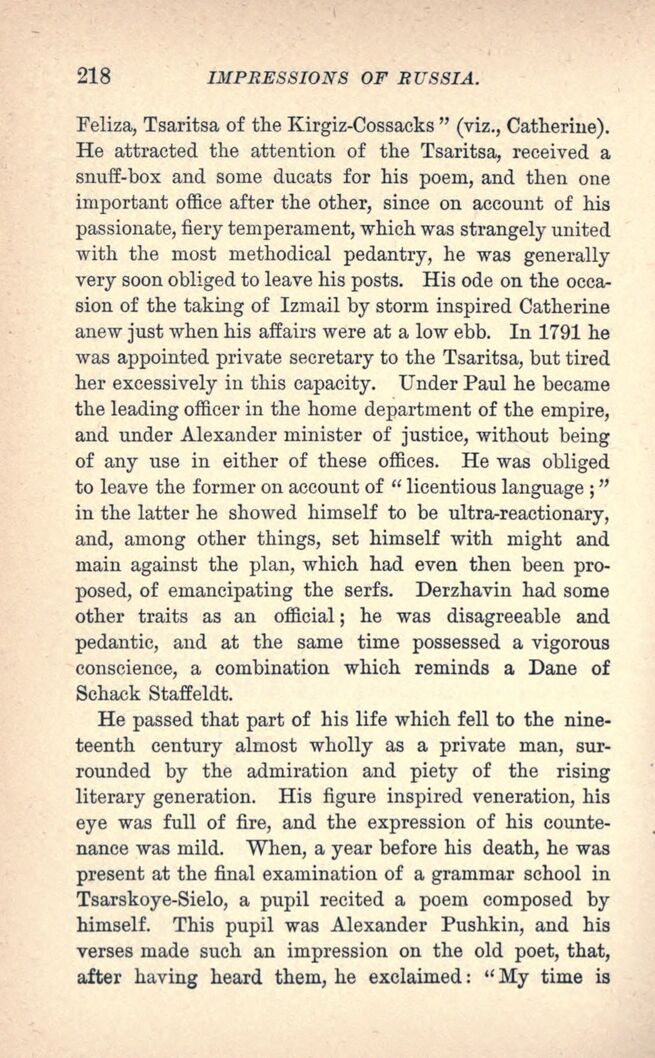
Full resolution (JPEG) - On this page / på denna sida - Impressions of Russian Literature - II

<< prev. page << föreg. sida << >> nästa sida >> next page >>
Below is the raw OCR text
from the above scanned image.
Do you see an error? Proofread the page now!
Här nedan syns maskintolkade texten från faksimilbilden ovan.
Ser du något fel? Korrekturläs sidan nu!
This page has been proofread at least once.
(diff)
(history)
Denna sida har korrekturlästs minst en gång.
(skillnad)
(historik)
Feliza, Tsaritsa of the Kirgiz-Cossacks” (viz., Catherine).
He attracted the attention of the Tsaritsa, received a
snuff-box and some ducats for his poem, and then one
important office after the other, since on account of his
passionate, fiery temperament, which was strangely united
with the most methodical pedantry, he was generally
very soon obliged to leave his posts. His ode on the
occasion of the taking of Izmail by storm inspired Catherine
anew just when his affairs were at a low ebb. In 1791 he
was appointed private secretary to the Tsaritsa, but tired
her excessively in this capacity. Under Paul he became
the leading officer in the home department of the empire,
and under Alexander minister of justice, without being
of any use in either of these offices. He was obliged
to leave the former on account of “licentious language;”
in the latter he showed himself to be ultra-reactionary,
and, among other things, set himself with might and
main against the plan, which had even then been
proposed, of emancipating the serfs. Derzhavin had some
other traits as an official; he was disagreeable and
pedantic, and at the same time possessed a vigorous
conscience, a combination which reminds a Dane of
Schack Staffeldt.
He passed that part of his life which fell to the
nineteenth century almost wholly as a private man,
surrounded by the admiration and piety of the rising
literary generation. His figure inspired veneration, his
eye was full of fire, and the expression of his
countenance was mild. When, a year before his death, he was
present at the final examination of a grammar school in
Tsarskoye-Sielo, a pupil recited a poem composed by
himself. This pupil was Alexander Pushkin, and his
verses made such an impression on the old poet, that,
after having heard them, he exclaimed: “My time is
<< prev. page << föreg. sida << >> nästa sida >> next page >>